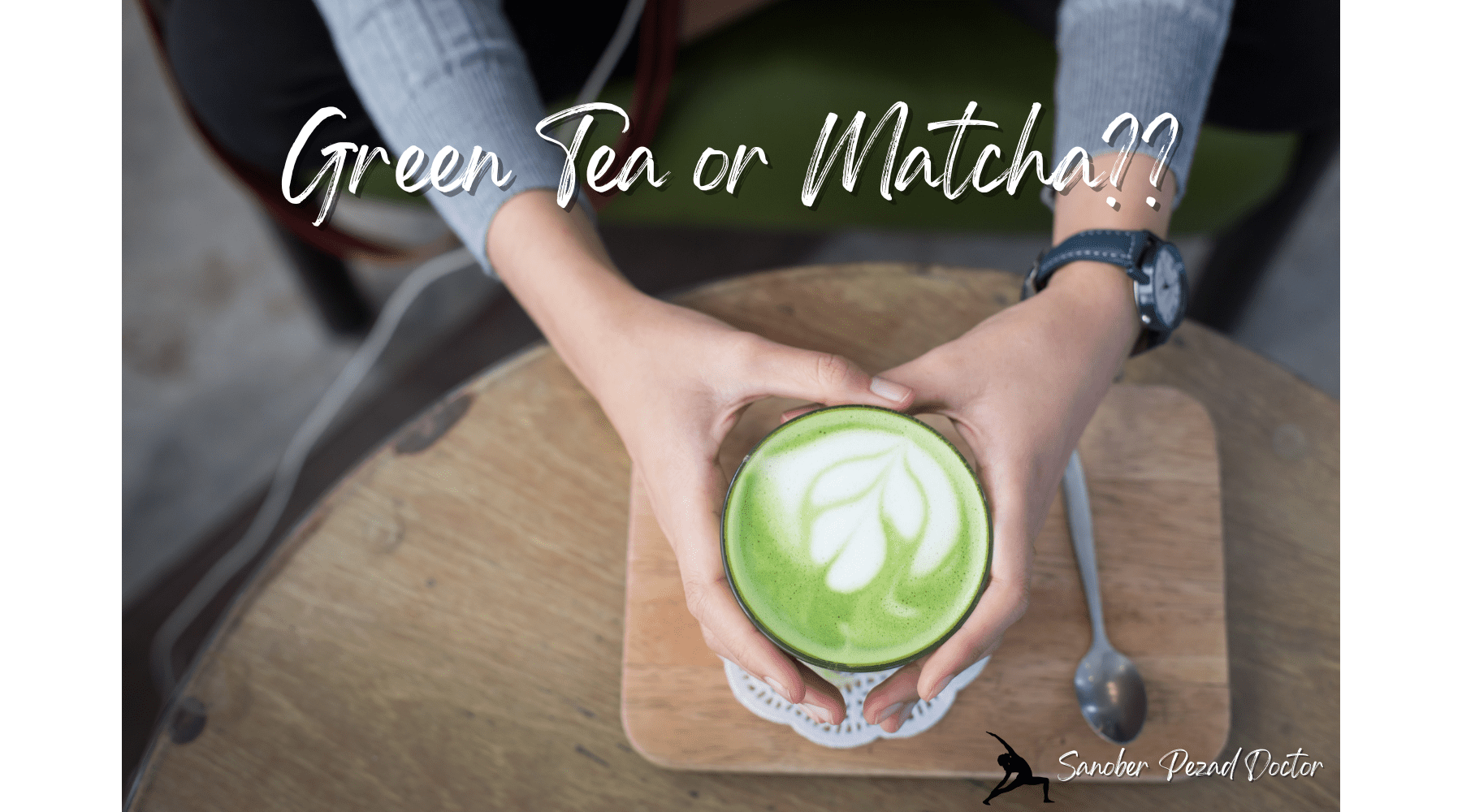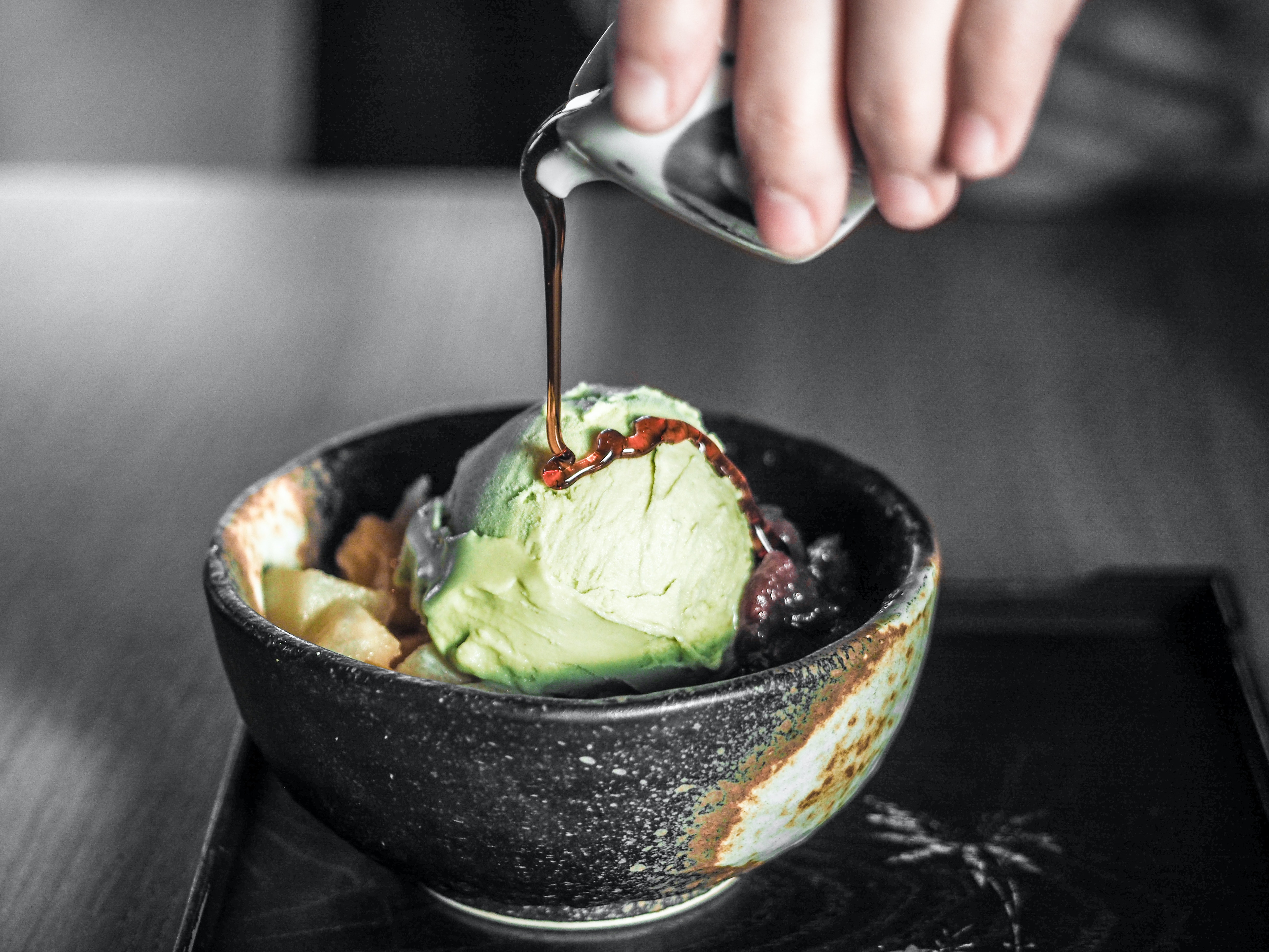The difference between Green tea and Matcha powder!

Green tea is considered one of the healthiest drinks on the planet since it is an excellent source of antioxidants, vitamins, and minerals.
But did you know that green tea and matcha powder both come from the same plant, Camellia sinensis?
So, what is the difference between green tea and matcha?

Green tea and matcha differ in their nutrition profiles due to the processing methods they are subjected to.
Matcha powder is made from green tea leaves that have been ground into a fine powder. Matcha is grown in the shade, forcing the plant to produce more chlorophyll to better convert any sunlight that reaches the plant into energy, whereas most green tea plants are grown in the sun.
Shade growing results in more nutrients, more antioxidants, and a stronger flavor!
What are the Health Benefits of Green tea/Matcha?
Green tea is very high in polyphenols. Polyphenols are plant chemicals that have powerful anti-inflammatory properties and one of the most potent polyphenols found in green tea is EGCG- Epigallocatechin gallate. (Challenge- Try saying this word 5 times to get used to it and then just randomly show off your newly acquired knowledge to anyone you meet!)
These polyphenols are known to mop up free radicals in the body and hence reduce the oxidative stress it is subjected to. It is also known to increase the growth of beneficial bacteria in the gut microbiota.
In addition to ECGC, green tea also contains caffeine and L-theanine, and this potent combination is a wonderful enhancer of cognitive function.
You will be happy to know that the caffeine content in green tea is much lower than in coffee and any stimulating effect is mitigated by L- Theanine, a calming amino acid, that aside from improving focus, helps to promote relaxation and improves sleep.
Hence, most people who drink green tea report more stable energy levels and increased mental clarity throughout the day compared to when they drink coffee.

Which one to Choose- Green Tea or Matcha?
Matcha powder dissolves in water completely, so you are essentially consuming the entire leaf (and all its nutrition) rather than just infused water.
Hence, it is without a doubt that the matcha fad had taken over the world for a good reason. But it is important to choose good quality as the chances of contamination are the highest with ready powders.
My Recommendations for authentic Matcha
Be Careful! There is a lot of fake matcha on the market! It is worth investing in organic matcha since there are concerns that the nonorganic versions were found to have a very high potential of having high levels of fluoride.
Here are 2 brands to consider that I personally love and have used over the years.
- Jade Leaf Ceremonial Grade Matcha
- Matchinga (I love that they have paired matcha with moringa powder for additional antioxidant benefit. You get the Best of both worlds!)- Moreover, I trust Perfect Supplements because they perform Independent 3rd Party Lab Testing on Each Batch of Finished Products, is publicly displayed for all to see.

To Conclude…
Both, green tea and matcha have excellent anti-inflammatory, cognitive enhancement, and gut-protective properties. Matcha is more concentrated and tends to be more expensive. But investing in a high-quality source is definitely worth the investment, that you will make for your health.
Sending lots of green, healthy, and happy wishes your way.
If you like what I share, consider Subscribing to stay connected. I do NOT spam. Promise! ?





